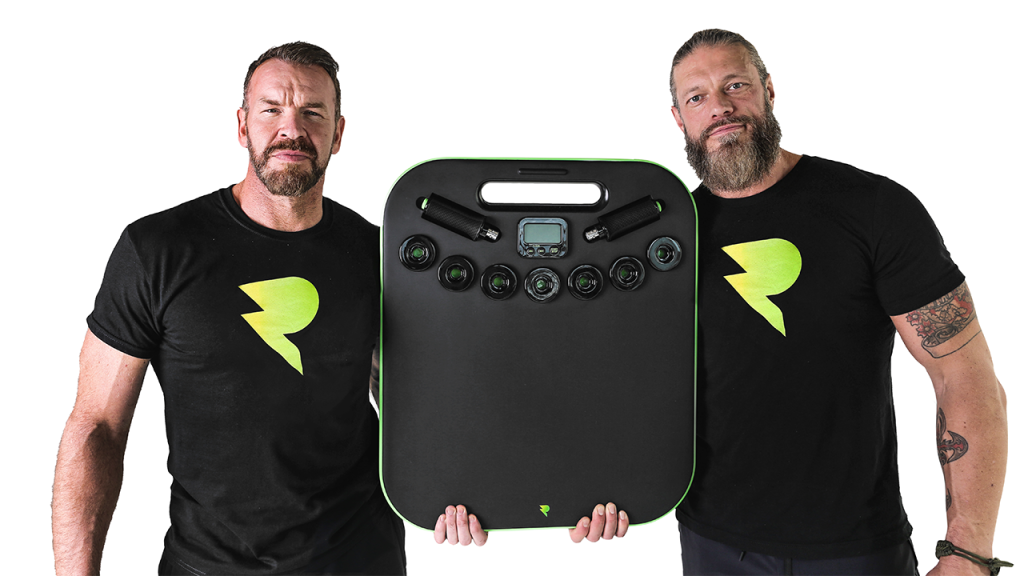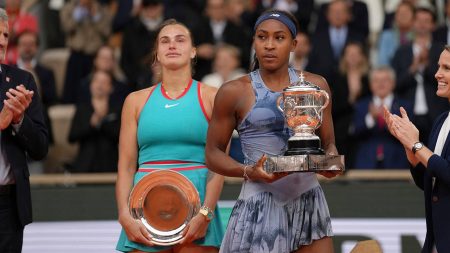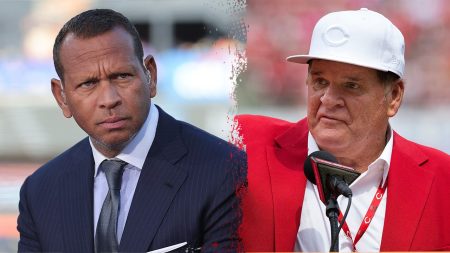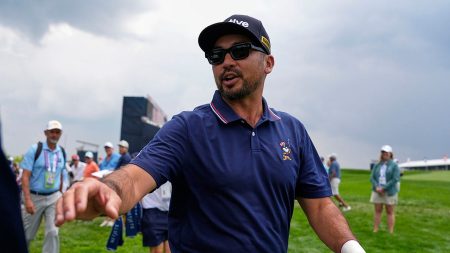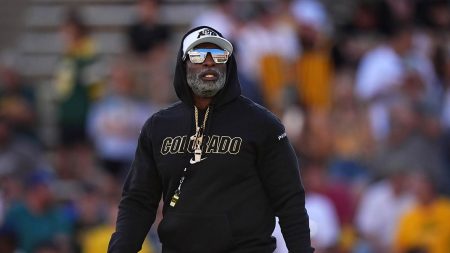All Elite Wrestling (AEW) stars Adam Copeland and Christian Cage, both aged 51, have a history of injuries that have affected their abilities in the ring. Copeland, who is known for his impressive career as a world and tag team champion, has faced neck and leg issues, while Cage, whose real name is Jay Reso, has also battled with various injuries. As they reached this stage in their lives, both men recognized the need to adapt their lifestyles to ensure they could continue engaging in day-to-day activities and prolong their wrestling careers. The result of their friendship and shared goals was the development of a fitness concept known as Pure Plank, which aims to revolutionize the planking experience by making it more comfortable, functional, and engaging for individuals of all fitness levels.
The turning point for Copeland came during an everyday moment with his children. He realized he was out of shape when he struggled to carry them up the stairs. This prompted a personal awakening, as he acknowledged that he had not been diligent about his diet or exercise routine. Driven by the desire to be more present and active for his daughters, Copeland committed to incorporating exercises into his life that would strengthen his core. Planking stood out to him as a foundational exercise capable of improving overall physical health without the intimidation of more complex routines that could lead to discouragement.
Meanwhile, Reso was also motivated to improve his physical fitness. During the pandemic, he was preparing for a wrestling comeback and started building a gym in his garage. Initially, he dismissed planking as a valid workout but was humbled when he found he could not hold the position for even 30 seconds. This was a wake-up call for Reso, who adopted an obsessive approach to mastering planking. His dedication paid off: not only could he hold the plank longer, but he also experienced a remarkable transformation in his body, achieving a six-pack at the age of 47 for the first time in his life.
As Reso integrated planking into his daily routine, he encountered practical challenges such as sweating during workouts, which hindered his ability to maintain the plank position. This experience sparked an idea that would eventually lead to the creation of Pure Plank. Reso envisioned a more effective tool that would allow users to maintain proper form even while sweating. He decided to develop handles that would help support the athlete in the plank position, facilitating better and more effective workouts. The primary goal of Pure Plank was to assist individuals in achieving the correct posture immediately, ensuring that they could hold the position without interruption.
The partnership between Copeland and Reso in launching Pure Plank came naturally, given their long-standing friendship. They viewed their joint venture not just as a fitness project but as a means of revitalizing their wrestling careers. Copeland reflected on how starting this fitness initiative led them both back to the wrestling ring after years of retirement—he had been away for nine years, while Reso had been out for seven. The physical and mental benefits gained from their new fitness regimen translated into renewed energy, helping them reclaim the vigor necessary for their performances and enabling them to take charge of their well-being.
Ultimately, both Copeland and Reso believe that planking is not merely beneficial for wrestlers but is also a fundamental exercise that everyone can incorporate into their daily lives. Especially at their age, they feel that engaging in this practice can help prolong their wrestling careers and improve overall health. Reso emphasized that the comfort of the Pure Plank device can accommodate users with shoulder or back issues, underscoring the exercise’s accessibility. Their holistic approach to fitness through planking serves as an inspiration not just for athletes but for anyone seeking to strengthen their core and enhance their quality of life.




